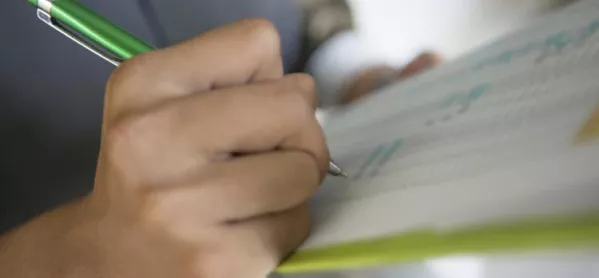Children’s education is being put at risk by a system that encourages schools to “game” the system and drill pupils to pass tests, a new study warns.
It says the quality of education in many schools is being damaged due to an accountability system that puts pressure on headteachers to produce good results.
The report, published by the RSA today, argues that action is needed to tackle the issue, such as providing more data about schools, making it harder to “teach to the test” and changing school performance tables.
While the current system of holding schools to account for pupils’ progress and results has helped to raise standards in the last 25 years, this has come at a cost, the study, by Julian Astle, a former adviser to former Lib Dem leader Nick Clegg, says.
“So focused have our schools become on achieving the proxy goals of passing tests, hitting targets and climbing league tables, that they risk losing sight of education’s higher purposes, like individual fulfilment and societal progress,” the report says.
“This is regrettable but understandable.
“With governors and trustees fearing for their schools, and headteachers fearing for their jobs, our punitive accountability system has come to dominate almost everything some schools do, distorting professional priorities and practice and narrowing and hollowing out the education our children receive.”
He added: “Outright cheating and the most egregious forms of gaming remain mercifully rare, though rising. But low-level gaming is rife and teaching to the test endemic.”
He said some schools are “gaming” the system, for example by manipulating admissions and exclusions to attract bright students and remove those that are lower-performing.
The study sets out a series of recommendations, including making tests hard to drill pupils to pass, and educating teachers about the dangers of teaching to the test.
It also calls for official assessments of performance to include more data about schools, students and former pupils, changing league tables to include the GCSE results of pupils who leave a school between starting secondary school and the time they sit their exams and preventing schools from acting as their own admissions body.
Mary Bousted, joint general secretary of the National Education Union, said the essay was “another sign that our accountability system has lost the confidence of those who once supported it”.
However, she added: “The solutions [Mr Astle] proposes do not match the scale of the problem. It is right to call for a fundamental change in the functions and priorities of Ofsted. But the pressures on schools to do the wrong thing will continue until the design of our curriculum and the demands of our assessment system are also changed.”
A Department for Education spokesperson said: “Every school must provide a broad and balanced curriculum that prepares children for adult life. We have reformed the primary and secondary school accountability systems to better reflect how well schools support pupils’ progress, including the introduction of progress measures that ensure schools are held to account for the performance of all of their pupils.
“These reforms, along with the hard work of teachers means there are currently 1.8 million more children in good or outstanding schools than in 2010.
“Any decision to exclude a pupil should be lawful, reasonable and fair. We are reviewing exclusions in schools to look at how we can improve practices and focus on the experiences of those groups who are disproportionately likely to be excluded.”




